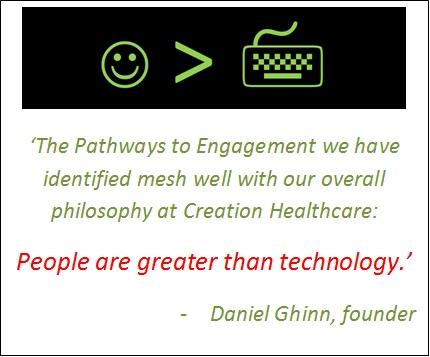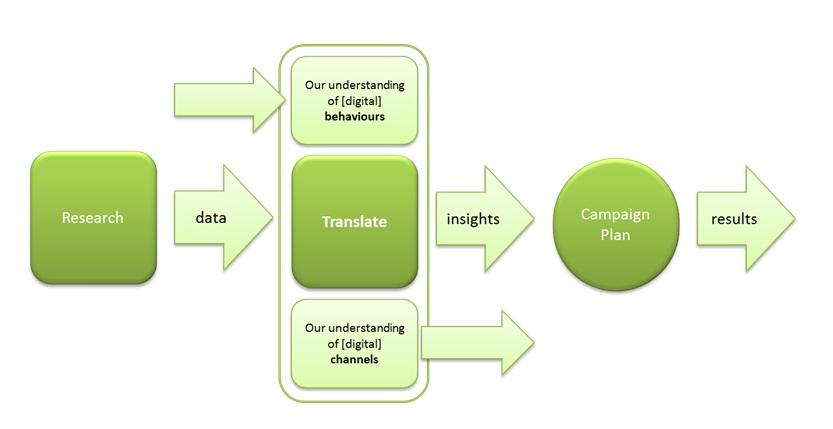Our recent event, Healthcare Engagement Strategy (HES) Summit 2012, proved popular with those who were able to attend, as well as those who could not. Participants benefited from the opportunity to learn and share, as well as build their professional networks. While others would not gain that personal experience, a number of individuals requested that we prepare a brief summary of the day.
Before the Summit, we sent out a brief survey. Together with our overall theme – Pathways to Engagement – your responses helped shape the day’s content. Several common themes emerged:
- There was strong agreement around the idea that digital is good for business, although serious questions arose regarding the interpretation of what ‘good’ means.
- Nearly all of you agreed that the benefits of ‘going digital’ outweigh the risks. Again, however, there was quite a bit of discussion around this question, in this case, about the amount of benefit organisations can achieve, depending on where it falls on the continuum of digital evolution.
- People also believe digital channels and tools can make them more effective, some were asking ‘how’?
- Finally, while it was nearly unanimous that people believe digital has changed the way we communicate with, and market to, our key stakeholders, several people expressed a need for greater clarity regarding how to understand stakeholder needs well enough to inform decisions regarding digital content and channels.
Far more interesting are the areas where we identified a clear divergence of opinion, including:
- A nearly equal number of respondents said digital has made their jobs easier… and more difficult.
- There were significant differences of opinion around the concept of individuals’ understanding of how to harness the power of digital communication and marketing to deliver value to the business AND make their jobs easier.
- In addition, an equal number of you said that digital is changing the way that you work with your colleagues, and that it is not.
As a group, we discussed the open-ended questions posed in the pre-Summit survey, the first of which was: What are the biggest barriers to using digital in healthcare? Responses centered on:
- Too few human and financial resources to do the job properly
- Need for greater understanding of both the content and format needs of customers
- Desire for greater insights, sifted out of the reams of data now at their fingertips.
The second question was: What one thing would drive marketing and digital professionals to use digital more often in healthcare? Key themes included:
- Greater clarity around digital activities
- Better understanding of ‘metrics that matter’
- Less bureaucracy
- Greater expertise amongst marketing teams
- More integration between digital and marketing/communications.
About HES Summit 2012
The event itself was not full of long speeches, nor did it offer an opportunity to learn the theoretical and technical ins and outs of how to ‘do digital’. Rather, HES Summit 2012 was all about discovering new ideas, learning about others’ experiences and sharing knowledge in an informal and safe environment. Cross-functional exchanges were designed to allow people to leave the Summit with ideas they could implement when they returned to their offices.
The focal point for the Summit was the six winners of this year’s Healthcare Engagement Strategy Awards, which are summarised below. (Read more.)
Award: Healthcare Engagement Strategy 2012 Open Dialogue Award
Winner: AstraZeneca #rxsave Twitter chat
Award: Healthcare Engagement Strategy 2012 ‘Facing Customers’ Award
Winner: Boehringer Ingelheim on Facebook
Award: Healthcare Engagement Strategy 2012 ‘Digital Health Services’ Award
Winner: NHS Local
Award: Healthcare Engagement Strategy 2012 ‘Time and Place’ Award
Winner: Pfizer Israel ‘Public Restrooms’ App
Award: Healthcare Engagement Strategy 2012 ‘Patient Engagement’ Award
Winner: Roche Diagnostics, Diabetes Care with the Big Blue Test and the diabetes online community
Award: Healthcare Engagement Strategy 2012 ‘Life Changer’ Award
Winner: Swaziland National Malaria Control Programme
From these excellent examples of healthcare engagement, we identified and discussed five Pathways to Engagement:

- Put people first
- Demonstrate outcomes
- Have patience
- Get governance right
- Invest in technology
We concluded the day with a discussion of the critical topic of planning, the basis upon which all of the Healthcare Engagement Strategy Award winners built their successful programmes. At Creation Healthcare, it all starts with research, which can take many forms – primary or secondary, qualitative or quantitative, existing or specially commissioned. From it, we collect data… a lot of data. Especially in the digital space, the sheer volume of numbers available to crunch can relegate research to the point of meaningless noise. And if not, healthcare organizations need help making sense of the data – extracting insights, and translating them into a plan that delivers real results.
This is informed by our understanding of digital behaviours, and the opportunities presented by digital channels around us – the right channels for a particular market or environment. The plan itself includes how we want to engage with, and even shape, the journeys that stakeholders take to reach us. It includes setting digital goals that we can measure, so we know the difference that is being made. When this foundation is in place, we can work with you to brief your creative agencies, your colleagues and other key internal stakeholders, to ensure that everyone is aligned around agreed goals. By developing a robust plan, with strong back-up, you are ensured of building a strong business case at the beginning, and delivering the value you need at the end.
The graphic below illustrates our approach to multichannel marketing, viewed through a digital lens. Contact us to learn more.


